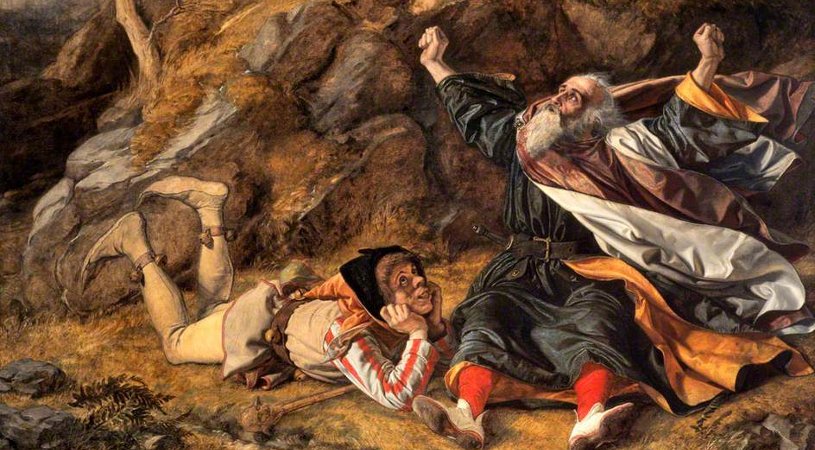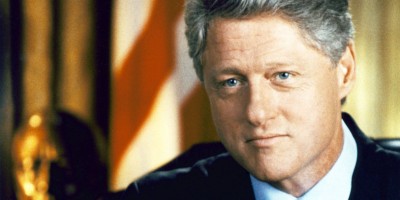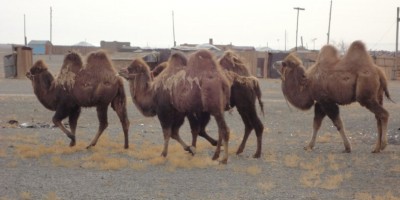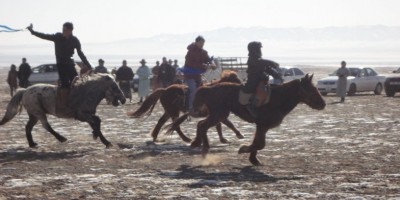Looking back on 2013 it is not likely to go down in history as a good year for the Government of Mongolia.
The year began with a heady sense of invincibility. Prime Minister Altankhuyag was presiding over a Democratic Party (DP) led coalition government after many years of being the junior member in Mongolian People’s Party (MPP)1 dominated coalition governments. His “Reform” cabinet declared themselves “a new government for changes [sic].”2 The government made notable improvements, particularly in terms of regularly engaging the public and projecting a sense of accountability in the civil service, but as 2013 progressed the sense of invincibility was washed away by a steady stream of political missteps and deteriorating economic conditions. These manifested themselves in decreasing foreign direct investment (FDI), declining coal exports, suspension of the Oyu Tolgoi underground mine development, and steep depreciation of the tugrik. Members of the cabinet have made efforts in recent months to explain the deteriorating economic conditions as the result of events beyond the control of the “Reform” government’s policies, but whoever or whatever is ultimately to blame, the public mood and economy at the end of 2013 was a whole lot worse than it was at the beginning. Looking ahead to 2014, there is a lot that needs to happen to put the public mood and the economy back on track. The following is a list of issues that will matter in making this year better than the last.
1. The “Reform” Cabinet and Factional Politics
Prime Minister Altankhuyag and his cabinet remain in control of the government in spite of growing calls for change. The opposition MPP has led recent failed attempts to have Minister of Economic Development Batbayar and Minister of Finance Ulaan sacked,3 and the cabinet faced the uncomfortable spectacle of DP Member of Parliament R. Amarjargal submitting his resignation because, as he explained, “Someone from the DP must take responsibility [for the policy failures of the last year]…I am ready to take the responsibility [if the PM, cabinet, or parliament won’t].”4 Parliament ultimately rejected his resignation letter, but the issues raised by the MPP and Amarjargal have not been put to rest. The cabinet is operating on borrowed time and in desperate need of an economic turnaround in the first quarter of 2014. It is hard to imagine how this cabinet can last much longer without at least one minister losing his job, and yet, as I argued here, factional politics within the DP and the coalition government favor the status quo. If the cabinet can hold out long enough for a string of good economic news, then it may just hold on through 2014.
2. “Do-nothing” Parliament
But, holding out for a string of good news may just be wishful thinking. The factional composition of the government has insulated the cabinet from losing their jobs so far, but it has also led to an increasing inability to govern. Members of Parliament are regularly not attending sessions in sufficient numbers to form quorums and proceed with official business. This lack of action is producing a growing sense among the public that this has become a “do-nothing” Parliament.5 This poses a significant problem in the coming year if the trend cannot be reversed. Parliament will have some big issues to address to not only fix the economy in the short run but also to put it back on a path of long term, sustainable growth. It will be extremely difficult to do that without a governing consensus of the majority. The DP are highly averse to forming a coalition government with the opposition MPP, but events may make that choice unavoidable in the coming months.
3. The Enkhbayar Strikes Back
A potential X factor is the rumored return of former president N. Enkhbayar to party politics. Since his pardon in August, he has been receiving medical treatment outside Mongolia. His actual influence in politics, I think, is sometimes overstated, but it is true that he is viewed with a suspicious eye by leaders in both the DP and MPP. The most recent rumors indicate that he is back to good health and ready to return to Mongolia.6 Whether he plans to re-engage in politics is an open question, but just the possibility may be enough to upset the status quo as the political establishment makes efforts to blunt his influence.
4. FDI and OT
FDI took a hammering in 2013 dropping 50 percent from 2012.7 It is likely to continue to take a hammering in 2014 if the recent calm and constructive dialogue surrounding Oyu Tolgoi does not credibly take hold. There are some that argue, mainly in the government, that Mongolia has been unfairly treated and its policy positions misrepresented in the international media. Whether that argument is valid or not, Mongolia’s reputation was definitely damaged in the international investor community by the election cycle politics that prevailed for much of 2012 and 2013. In the coming year a lot will ride on whether the political environment has changed enough to reverse that damage.
5. Coal is King [Lear?]
In addition to declining FDI, Mongolia’s coal sector took a beating in 2013. Revenues from coal exports were more than 40 percent lower than government projections.8 A significant cause was Tavan Tolgoi being unable to produce coal that was cost-competitive under the tough market conditions that emerged in 2013. As was demonstrated with the troubled Chalco off-take agreement, it cost Tavan Tolgoi more to produce a tonne of coal than it could sell a tonne.9 In 2014 the coal market may rebound, but 2013 should be a lesson to the government to invest in the infrastructure necessary to make Tavan Tolgoi internationally competitive. It is a massive deposit which requires serious investment in order to truly tap its full value.
6. MNT Promises
The exchange rate is the best real-time barometer for the health of the economy. In the last year the turgik lost approximately 20 percent of its value, and it is currently trading at levels worse than in 2009 prior to a currency crisis that required an IMF bailout.10 Some parliament members have tried to explain the depreciation as a consequence of the central bank not retaining enough gold in reserve,11 but that is only a symptom of a more serious problem. The macro-economy has been using much more hard currency, gold or otherwise, than it has been able to generate in an environment of declining FDI and coal exports. Something will have to give at some point. Either the economy will need to generate an influx of hard currency through, let’s say, increased exports or to impose a severe decrease on imported goods like food, furniture, construction materials, and cars. The former is unlikely in the near term and the latter is politically unpalatable.
7. Bonds, Bonds, Bonds
Hey, how about just borrowing the money? If you understand the financial predicament the macro-economy is in, then it is also understandable why the government is so keen to receive funds from the much ballyhooed “Samurai Bonds,” which are Japanese securities issued on behalf of non-Japanese recipients such as foreign governments or companies. The problem with the Samurai Bonds, in Mongolia’s case, is that 1) there is a lot of legal uncertainty about whether the Ministry of Finance isn’t breaking the Fiscal Stability Law by receiving the proceeds12 and 2) there is a lot of general ambiguity about whether the government will ultimately have any control over how the proceeds are spent.13 For now, even the idea that the bonds may be issued seems to be having a calming effect on the domestic market. In the coming months, we’ll see if the bonds have a substantive effect on the economy.
8. Khan Resources, Standard Bank, and 106 Licenses
Unfortunately for the government, it has the specter of more hits to the country’s reputation and several hundred million dollars in punitive damages hanging over it in 2014. In the spring a final judgment is expected in the Khan Resources arbitration case in which the company seeks approximately USD 300 million in damages for the government allegedly expropriating its mining license in 2009.14 The government is also potentially on the hook for repaying a USD 131 million loan provided by a South African bank called “Standard Bank” to a local holding company called “Just Group” that went into default in 2013.15 And, finally there is the issue of 106 mining licenses that were summarily revoked without due process for the license holders after the government official who issued the licenses was convicted of corruption in 2013.16 All three issues pose significant reputational and financial challenges in the coming year.
9. Power and Rail
Let’s round this list out with some blatant editorializing. Instead of borrowing money to pay off old debts and cover up bad policy, the government needs to be borrowing money to build power plants and rail lines. This is the one area in which the geopolitical interests of both the government and large international investors align. If the country can source its own power cheaply and reliably and transport goods at international standards, it will go a long way towards building a stronger more secure future for the country. It will also make it easier for investors to generate a return from their investments in the country. The question for 2014 is whether the government will finally get serious about solving the country’s power and transport problems. Maybe this is how the Samurai bonds will be spent?
10. Air Pollution
And, one last bit of editorializing. Ultimately the goal of a democratically elected government should be to improve the livelihoods of its citizens rather than being a rapacious competitor in the market. The problems facing the country are pretty obvious to anyone who spends more than a fleeting moment in the country. Poverty is a major problem, but so too is the fact that nearly 50 per cent of the population lives in a highly toxic and polluted city. Air pollution in Ulaanbaatar is not new. It has been a topic of conversation for the last decade and half, at least, and yet each year passes without serious and sustained attempts to fix the problem. If 2013 taught anything, it is that the government should spend a little less time trying to be a player in business and a little more time in trying to make the country a better place to live. In the end, all the money in the world is not worth living in a toxic city. To his credit, Mayor Bat-Uul has demonstrated that city planning and administration can work, and let’s hope there is more of it in 2014.
Footnotes
1. Actually the Mongolian People’s Revolutionary Party (MPRP) for most of that time before the party was renamed leading up to the 2012 parliamentary elections.
2. See the “Reform” Government website at http://www.zasag.mn/.
3. Ш.Чимэг, “Сайд нарыг огцруулахыг шаардав”, News.mn, http://politics.news.mn/content/165490.shtml, 2013-12-19.
4. Р. Амаржаргал, “Төрийн байгуулалтын байнгын хорооны хуралдаанд хэлсэн үг”, http://www.amarjargal.org/2013/12/%D1%83%D0%B8%D1%85-%D1%8B%D0%BD-%D0%B3%D0%B8%D1%88%D2%AF%D2%AF%D0%BD-%D1%80-%D0%B0%D0%BC%D0%B0%D1%80%D0%B6%D0%B0%D1%80%D0%B3%D0%B0%D0%BB%D1%8B%D0%BD-%D1%87%D3%A9%D0%BB%D3%A9%D3%A9%D0%BB%D3%A9%D0%B3/, 2013-12-10.
5. Ш.Чимэг, “Ажилдаа ирдэггүй гишүүдэд сонгогчдоос хүргэх үг”, News.mn, http://politics.news.mn/content/164846.shtml, 2013-12-12.
6. X. Г. Дарь, “МАХН-ын дарга Н.Энхбаярыг намынх нь гишүүд эргэжээ”, News.mn, http://politics.news.mn/content/166651.shtml, 2013-1-3.
7. Д. Нямдаваа, “Гадаадын шууд хөрөнгө оруулалт, сая ам.доллар”, graph in Төрийн бодлогын үр дүн in Эргэлтийн цэг 2014, Үндэстийн тойм, 2014, pg. 140.
8. Э.Нарантунгалаг, “Хятадын нүүрсний олборлолт 2.5 хувиар нэмэгджээ”, Bloomberg TV, http://bloombergtv.mn/%D1%85%D1%8F%D1%82%D0%B0%D0%B4%D1%8B%D0%BD-%D0%BD%D2%AF%D2%AF%D1%80%D1%81%D0%BD%D0%B8%D0%B9-%D0%BE%D0%BB%D0%B1%D0%BE%D1%80%D0%BB%D0%BE%D0%BB%D1%82-2-5-%D1%85%D1%83%D0%B2%D0%B8%D0%B0%D1%80-%D0%BD%D1%8D%D0%BC%D1%8D%D0%B3%D0%B4%D0%B6%D1%8D%D1%8D/, 2013-12-19.
9. Michael Kohn, “Mongolia Loan May Help Tavan Tolgoi Exit Chalco Deal, CEO Says”, Bloomberg, http://www.bloomberg.com/news/2013-01-24/mongolia-loan-may-help-tavan-tolgoi-exit-chalco-deal-ceo-says.html, 2013-1-24.
10. See http://www.themongolist.com/blog/government/78-depreciating-tugrik-is-it-deja-vu-all-over-again.html.
11. Б. Ням, “Алтны худалдааг ил тод болгох тухай хууль хэрэгтэй юу”, Eagle TV, http://politics.eagle.mn/content/read/6594.htm, 2013-10-21.
12. Robert Minto, “Mongolia: new Samurai bond puts fiscal rules in spotlight”, The Financial Times, http://blogs.ft.com/beyond-brics/2013/12/17/mongolia-new-samurai-bond-puts-fiscal-rules-in-spotlight/, 2013-12-17.
13. Л. Энхдэлгэр, “‘Самурай’ бондтой 2014 онд учирна”, Eagle TV, http://economics.eagle.mn/content/read/10492.htm, 2013-10-31.
14. Eric Reguly, “Khan Resources takes Mongolia expropriation to arbitration panel”, the Globe and Mail, http://www.theglobeandmail.com/report-on-business/international-business/khan-resources-takes-mongolia-case-to-arbitration-panel/article15172557/, 2013-10-30.
15. Michael Kohn, “Standard Bank Consultant Detained in Mongolia Amid Debt Dispute”, Bloomberg, http://www.bloomberg.com/news/2013-12-09/standard-bank-consultant-detained-in-mongolia-amid-debt-dispute.html, 2013-12-9.
16. “Foreign investors cry foul as Mongolia revokes mine licenses”, Reuters, http://www.reuters.com/article/2013/11/07/mongolia-mining-licenses-idUSL3N0IS33820131107, 2013-11-7.



